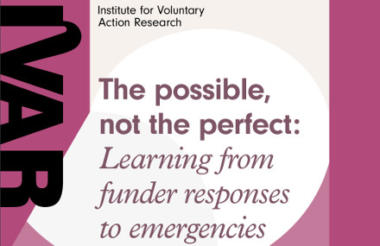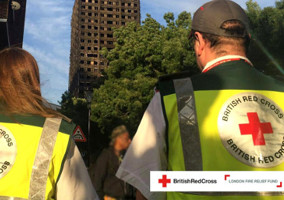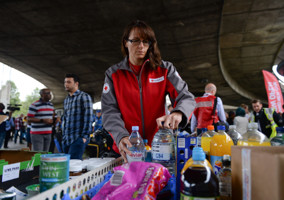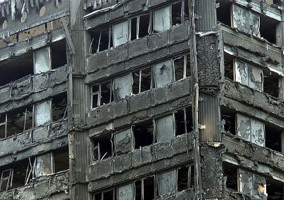The Institute for Voluntary Action Research has published a report that looks at learnings from responses by funders to emergencies over the last year.
In the report, The Possible, not the perfect: Learning from funder responses to emergencies, IVAR looks at responses to three different emergencies during summer 2017; the Grenfell Tower fire, the London Bridge and Borough Market attacks, and the Manchester Arena bomb.
Commissioned by London Funders, the membership network for funders and investors in London's civil society, the report aims to capture key features and aspects of funders’ grant-making responses in order to “contribute to wider thinking about future emergency planning and related initiatives”.
The aim of the report was to “understand what funders did differently and what made this possible, both to share their learning with others called to respond to future emergencies and to identify how it might be used to influence and improve day-to-day grantmaking practice in relation to community organisations.”
David Farnsworth and Monica Needs, the chair and vice chair of London Funders, wrote in the foreword: “This report shows what is possible when people are given the power to shape funding processes. It highlights how funders responded in times of crisis, drawing on the experience of people involved from all sectors of the funding community. It recommends how we can challenge ourselves to improve ways of working – to respond effectively not just to emergency events, but to tackle the crises facing communities every day.”
It said that collaborative programmes highlighted in this report demonstrate that it is “possible for funders to step outside their normal way of doing business – and that they do not need previous experience in emergency grant-making to make an effective contribution to community organisations responding to immediate and pressing community needs”.
Getting money 'quickly and intelligently'
It outlined six conditions, principles and ways of working have emerged that may help others get money quickly and intelligently to community organisations.
These are:
- Active networks to support collaboration
- Leadership and facilitation
- Finding out what is needed
- Models for cooperation between funders
- Simple, supportive processes
- Readiness to manage unexpected challenges
Potential to ‘bring greater urgency’
The report also said that few funders involved in emergency response expected to take on the role but “they saw a gap in support for community organisations that was outside the scope of public donations to help individuals and would not be met – or not met quickly enough – by central and local government funding processes.”
The report outlined four areas where there is a real potential to “bring greater urgency, responsible lightness of touch and more open relationships into day-to-day grant-making practice, and balancing scrutiny and trust”.
These are:
- Streamlining core processes
- Creating opportunities for funders and community organisations to talk
- Exploring collective efforts to reduce the burden of fundraising for community organisations
- Experimenting, learning and improving together
|
Related articles












